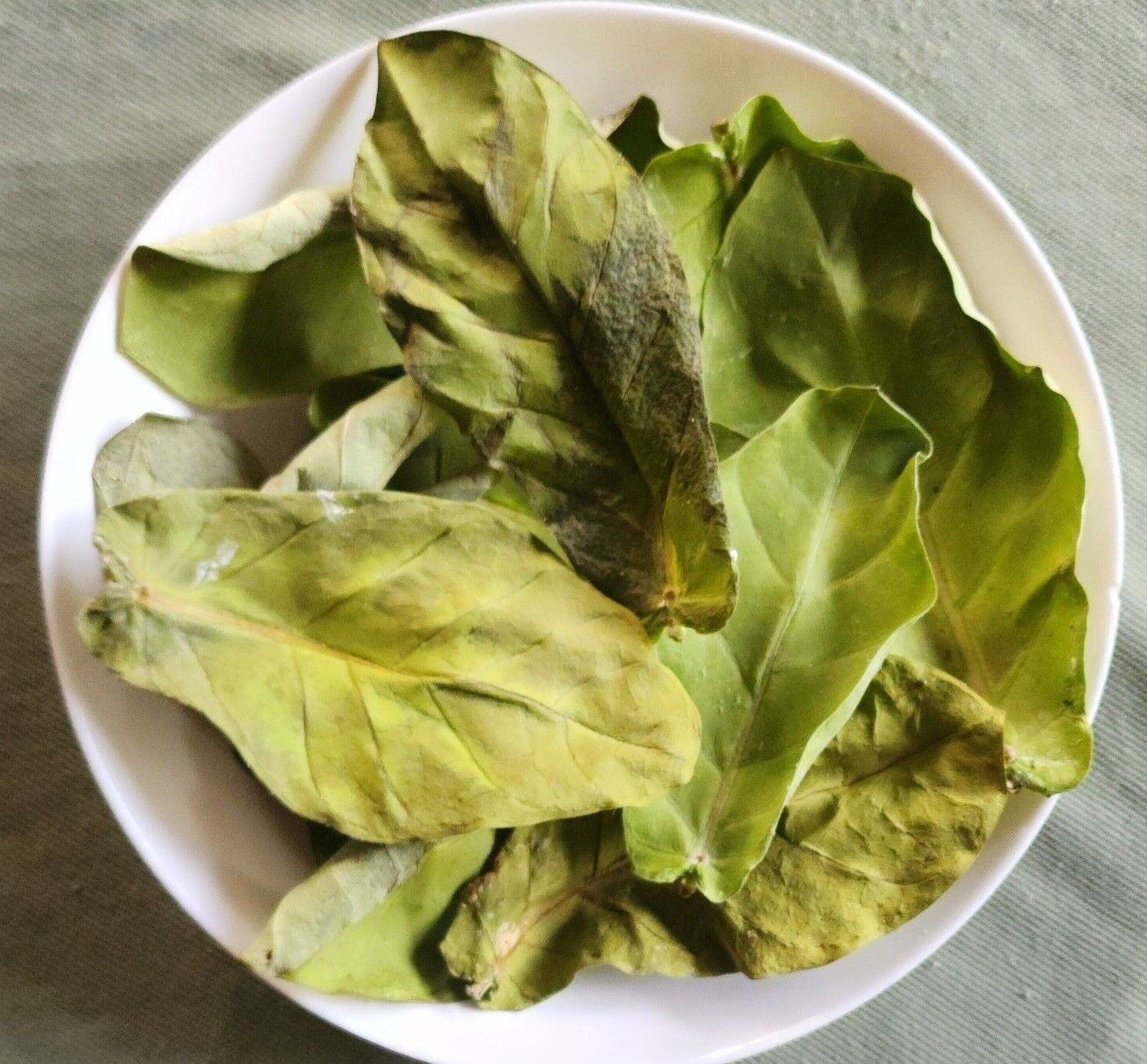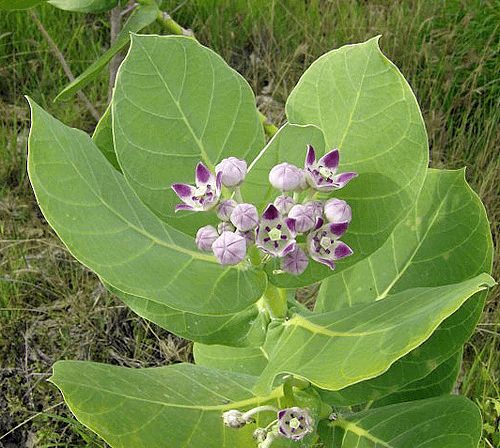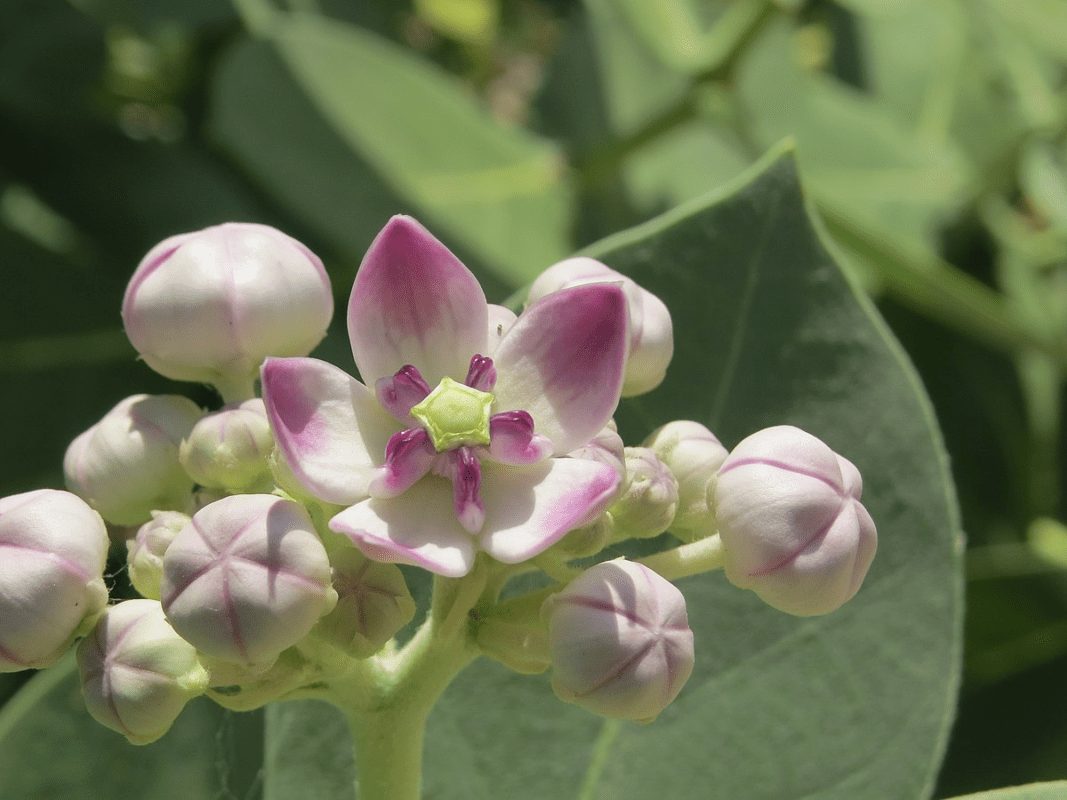Blog
Apple of Sodom : Unlocking the Healing Power of a Dangerous and Sacred Herb

Some plants are whispered about in legends. They carry names that evoke mystery, power, and even a hint of danger. The Sodom Apple is one such plant.
Known to botanists as Calotropis procera, this rugged desert shrub is steeped in folklore. Ancient texts describe a beautiful fruit growing near the Dead Sea that would dissolve into smoke and ash when plucked, an illusion of sustenance. This legend gave it its dramatic names: the Sodom Apple, the Dead Sea Apple, or the Apple of Sodom.
But while travelers and historians were fascinated by its notorious reputation, traditional healers from the arid landscapes of Africa to the vibrant heart of Asia were unlocking its profound medicinal secrets. In the ancient science of Ayurveda, this plant is not a symbol of illusion, but a source of intense healing power known as Arka. In Sri Lanka, we know it as Wara (Apple of Sodom).
How can a plant with a poisonous reputation be a cornerstone of traditional medicine? It’s a fascinating story of duality, respect, and the incredible potency hidden within nature. Let’s explore the powerful health benefits of Arka, while also learning why this legendary plant must be handled with the utmost care.
Arka: The “Sun Herb” for Pain and Inflammation

In Ayurveda, every herb has a specific energy. Arka’s name is derived from the Sanskrit word for “sunbeam,” which perfectly describes its nature: it is intensely hot, sharp, and penetrating (Ushna Virya). This intense heating energy makes it one of the most powerful remedies for conditions caused by cold and stagnation, particularly chronic pain and inflammation.
Its most famous and widely accepted use is for providing powerful, targeted relief to aching joints and swollen muscles.
The Traditional Heated Leaf Poultice (Apple of Sodom)
This is where the Sodom Apple truly shines as a therapeutic agent. For centuries, it has been a go-to external remedy for conditions like arthritis, rheumatism, joint swelling, gout, and muscle sprains. The traditional method, known in Ayurveda as upanaha sweda, is a masterpiece of simple, effective folk medicine:
- The large, sturdy leaves of the Wara plant are often coated with a layer of a carrier oil, like sesame or castor oil.
- They are gently warmed over a flame (or a dry pan) until they become soft, pliable, and fragrant.
- These warm, medicated leaves are then applied directly to the painful or swollen area and often tied in place with a cloth.
The heat from the leaf, combined with the potent analgesic (pain-relieving) and anti-inflammatory compounds that are released, provides deep, penetrating relief. It works like a natural, supercharged heating pad, soothing stiffness and easing the chronic pain that resides deep within the joints.
Beyond Pain: A Spectrum of Traditional Uses
The plant’s unique flowers, which resemble a small, intricate crown, have also earned it the name “King’s Crown.” Its benefits, when used correctly, are truly fit for a king.
A Potent Ally for Skin Health
The milky latex of the Arka plant, while toxic, is a powerful topical medicine in the hands of a skilled traditional healer. Its potent antimicrobial, anti-inflammatory, and wound-healing properties make it a historical remedy for a host of stubborn skin issues, including boils, sores, certain types of warts, and fungal infections. The flowers and root bark are also used in various preparations for skin health.
Aiding Respiratory Relief
The heating and penetrating nature of Arka makes it a traditional remedy for respiratory conditions characterized by coldness and congestion. As a powerful expectorant, it helps to liquefy and expel thick, stubborn phlegm from the lungs, providing relief in chronic conditions like asthma and bronchitis.
Supporting Digestive Wellness

In Ayurveda, bitter and pungent herbs are used to kindle a sluggish digestive fire (Agni). In very small, purified, and professionally prepared doses, Arka is used to stimulate digestion, relieve bloating, and act as a powerful laxative to cleanse the bowels and eliminate parasites.
A Critical Word of Extreme Caution: This Plant Must Be Respected
It is impossible and irresponsible to discuss the benefits of Calotropis procera without emphasizing the need for extreme caution. This is not a gentle kitchen herb you can experiment with.
- The Milky Latex is Toxic: The sap of the Sodom Apple is a poison. It should never be ingested in its raw form. If it comes into contact with the eyes, it can cause severe inflammation and even blindness. Contact with sensitive skin can cause painful blisters.
- Expert Preparation is Non-Negotiable: In Ayurveda, Arka is almost always used externally. On the rare occasions it is used internally, it is only after a rigorous and complex purification process called shodhana. This process, performed only by trained practitioners, neutralizes its toxicity while preserving its medicinal properties.
This is a herb that should only be used under the guidance of a qualified Ayurvedic practitioner or a knowledgeable traditional healer. Attempting to self-medicate with this plant, especially by ingesting any part of it, can be extremely dangerous. Its power to heal is directly linked to the wisdom of how to use it safely.
The Legend and the Reality
The Sodom Apple, or Arka, perfectly embodies the ancient concept that the difference between a medicine and a poison is often the dose—and the knowledge. Its legendary reputation as a fruit of illusion is matched only by its real-world power as a potent healing agent. It teaches us a vital lesson from the ancient world: nature’s most powerful gifts are not to be feared, but to be respected, understood, and used with profound wisdom.
Disclaimer: This article is for informational and educational purposes only and does not constitute medical advice. Calotropis procera is a potent and potentially toxic plant. Do not attempt to use this herb in any form without the direct supervision of a qualified healthcare professional or a certified Ayurvedic practitioner who is experienced in its proper preparation and use. Self-medication is dangerous.

Apple of Sodom medicinal uses
Apple of Sodom leaves
Apple of Sodom plants
Apple of Sodom benefits
Apple of Sodom seeds
Apple of Sodom flower
Apple of Sodom in ayurveda
Discover more from Nath Mart
Subscribe to get the latest posts sent to your email.
